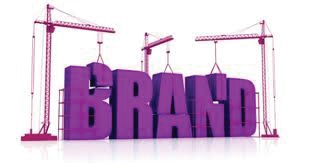It’s not about logos, slogans, or packaging. It’s about keeping promises.
Of all the assets your business owns, your brand is one of the most valuable and the most elusive. Without a strong brand identity, your firm is like a wallflower at the prom, sitting in the margins without a story or a voice to tell it. But, unlike purchasing a piece of office equipment or technology, building your brand isn’t done in a day, and it’s far more intangible than many other aspects of growing your business. So intangible and elusive, in fact, that firm owners often struggle with grasping just what a brand is all about.
What is a brand?
Ask a hundred people what a brand is, and chances are, you’ll get a hundred different answers. In fact, it’s practically easier to describe what a brand isn’t. A brand isn’t merely a logo. It’s not a slogan, a motto, or tagline. It’s not a signature color, graphic style, or packaging. It’s not a theme song or jingle. It’s not any single one of these things. Your brand is shaped by all of these items, but the sum is far greater than the parts. Your brand is the big, ongoing impression you make to your world, whether you stand on a global stage or in a local spotlight.
David Bowie, a masterful businessman as well as a musician and pop culture icon, once observed, “Product plus personality equals brand.” In other words, take Coca-Cola and Pepsi: From a product standpoint, they are practically identical—caramel-colored sugar water, admittedly with some subtle differentiation in taste. But wrap them in their respective personalities that have been developed over decades, and you see how powerful a strong brand really is.
Professor Philip Koetler of Northwestern University’s Kellogg School of Management has a slightly different take on brands, observing, “If you’re not a brand, you’re a commodity.” In other words, if you’re not Coke or Pepsi or something equally powerful in the eyes of the consumer, you’re just caramel-colored sugar water. The operative phrase being, “in the eyes of the consumer.”
It’s also important to understand that your brand doesn’t exist on a shelf, in a store, in advertisements, or in cyberspace. It exists where client experience, perceptions, opinions, and attitudes intersect: inside the client’s mind. As Peter Drucker observed, “Your brand is what you own in the mind of the consumer.”
Author Marc Gobé fleshed out Drucker’s observation by demonstrating that people’s perceptions and beliefs about brands develop into a sort of emotional relationship. It begins with simple awareness, devoid of any value proposition, and progresses the more the consumer understands and interacts with the brand. The deepest level of relationship—brand loyalty—emerges when the brand earns trust with the consumer and is seen as consistently delivering and keeping its promise.
In other words, to build your brand, your brand has to make and keep promises. So, what does your brand promise? Can you state it clearly and concisely? Can your staff? If you don’t all know what your brand promises, how will you be able, as a business, to deliver on that promise?
Articulating your brand promise
Let’s not reinvent the wheel. Instead, let’s use the technique and format that is widely spoken in the business world. Your brand promise can be easily communicated in this formulaic sentence:
To (your target audience), my brand offers (your point of distinction among competitors), by doing/providing (reasons to believe).
Fill in the blanks in parentheses, and you’re on your way to unifying your staff’s understanding of your brand promise and building a stronger brand and business. One hint: when you consider your target audience, describe them in terms of their needs and concerns, rather than age, income, and other demographic descriptors. Here’s an example from a real-world brand, Boston Market restaurants:
“To busy people who care about eating well, yet must often serve meals prepared outside the home, Boston Market provides delicious, family-pleasing, home-style meals quickly and conveniently, by serving the kind of fresh, quality food that our customers would make themselves if they had the time, and by making our meals simple to order and bring home from one of our 450 neighborhood locations.”
After you achieve clarity with the brand promise, make a critical assessment of how well you and your staff are delivering and keeping that promise, and identify ways to improve. To build a powerful brand, you should be living your brand promise every day.
—————-
Kristy Short, Ed.D, is president of rwc360 LLC (rwc360.com)—a firm dedicated to providing marketing and public relations services to the accounting profession. She is also a professor of English and marketing. Reach her at kristy.short@cpapracticeadvisor.com or kristy@rwc360.com. Chris Rund is a brand development advisor with RootWorks LLC (rootworks.com), where he coaches clients on how to build a powerful and sustainable brand identity.
Thanks for reading CPA Practice Advisor!
Subscribe Already registered? Log In
Need more information? Read the FAQs
Tags: Firm Management, Marketing





